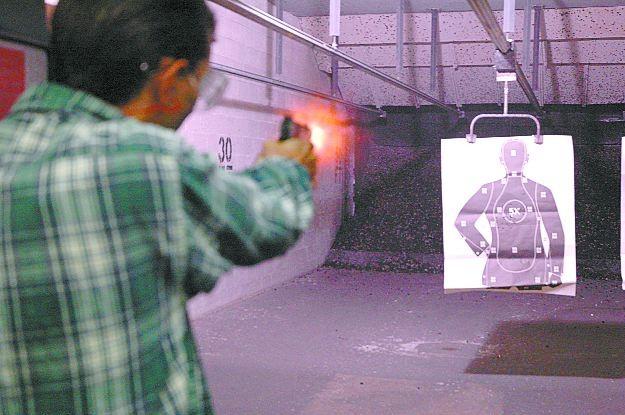With the stroke of a pen, President George W. Bush granted the gun lobby a pivotal victory Wednesday.
Bush signed The Protection of Lawful Commerce in Arms Act into law, which prevents gun manufacturers from being sued if their firearms are used in a violent crime.
The law does not, however, protect manufacturers from being sued for selling faulty firearms or for knowingly selling firearms to felons.
Wayne LaPierre, National Rifle Association executive vice president, called the law in a news release “the most important piece of pro-gun legislation in 20 years.”
White House spokesman Allen Abney told The Daily Reveille in a phone interview that Bush’s motive for signing the law was because Congress passed it and sent it to his desk.
“Congress passed the bill and sent it to the President, so he signed it,” Abney said.
Abney would not say whether Bush had any personal feelings about the law.
The bill was overwhelmingly approved by the House of Representatives in a 283 to 144 vote, and the Senate passed it 65 to 31.
The NRA pushed for the act to be passed for the past seven years, saying it provides protection to an industry plagued by frivolous lawsuits.
“This law will preserve the American firearms industry and also help preserve manufacturing jobs,” LaPierre said in a news release. “American companies will cease to make products if they continue to be sued every time a violent criminal they do not know, have never met and cannot control misuses a legal non-defective product. This is a significant step toward saving millions of manufacturing jobs.”
Many in the anti-gun lobby said they consider the law a defeat, calling it “a
horrible piece of legislation.”
“This is the first time a specific class of business has been virtually immunized from civil litigation,” said Peter Hamm, communications director for the Brady Campaign to Prevent Gun Violence.
Zach Ragbourn, another Brady Campaign spokesman, said while the organization expected Bush to sign the law, he is disappointed Bush did.
“He said all along he’d sign it, and he did,” Ragbourn said. “It’s hard to consider this a defeat when the conclusion is foregone.”
Ragbourn said he does not see the law as the end of lawsuits against gun manufacturers.
“We have cases with merit that will shortly go through the appeal process to fight the law,” he said. “The Supreme Court can still overturn it.”
While the debate between gun supporters and anti-gun lobbyists continues to rage in Washington D.C., some University students also have trouble agreeing on whether the law is a good move for the country.
The law’s protection of gun manufacturers hits close to home for some Louisianians because the state has among the highest number of gun-related deaths in the country.
In their most recent tally in 1998, the state Department of Health and Hospitals ranked Louisiana third highest in the country for gun-related deaths.
In 2000, the Open Society Institute released a study of the correlation between loose gun laws and the number of gun-related deaths within a state.
Louisiana was found to be second only to Maine in the country’s loosest gun-control laws.
Erik Browne, philosophy junior and member of LSU College Democrats, said the ability to sue gun manufacturers holds them accountable and makes them responsible for their products’ inherent danger.
“If you take away the ability to sue, [gun manufacturers] have less incentive to be responsible in manufacturing guns,” Browne said. “Gun manufacturers, especially in regards to handguns, should be responsible for the product they are making. If they aren’t responsible for them, who is?”
Everett Baudean, English sophomore and treasurer for the University’s Firearm Rights Coalition, said he disagrees.
“It’s like suing a car company when you run someone over,” Baudean said. “This law nullifies one of the more nonsensical actions our opposition tries to take. This is a positive step on our side of the argument.”
Contact Jeff Jeffrey at jjeffrey@lsureveille.com
Bush signs pro-gun bill
October 27, 2005
Patrick Barlow fires a handgun Wednesday afternoon at Precision Firearms and Indoor Range the same day President Bush signed The Protection of Lawful Commerce in Arms Act into law, which prevents lawsuits against gun manufacturars whose firearms are used
Bush signs pro-gun bill




